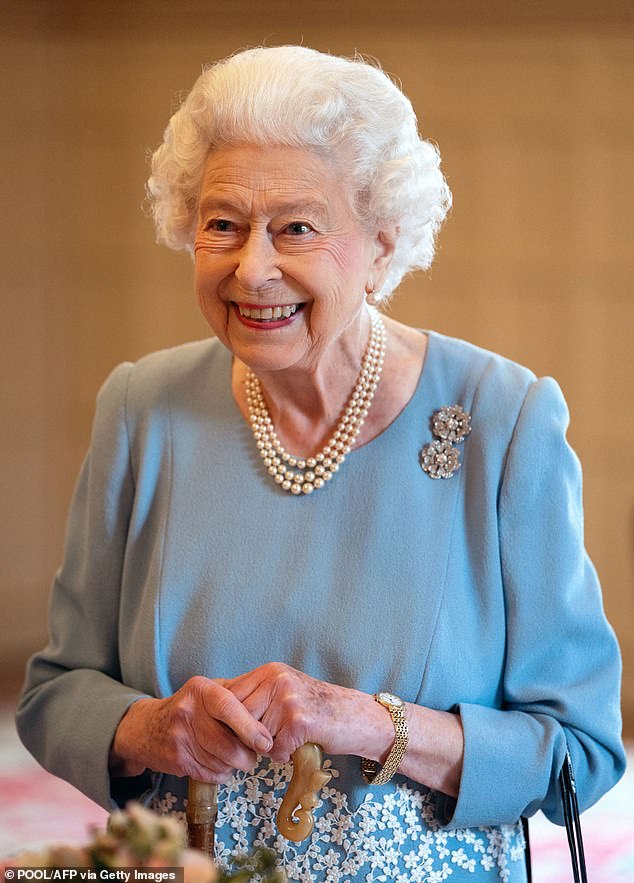Sunrise host Natalie Barr’s brutal two-word takedown as she unleashes over Queen’s bone cancer shock
Natalie Barr has criticized former British Prime Minister Boris Johnson for revealing that the late Queen Elizabeth II had bone cancer.
The former prime minister, 60, said in his upcoming memoir Unleashed that he had known about the monarch’s condition for more than a year before her death in 2022.
Sunrise host Barr was angry that Mr Johnson had broken protocol by revealing the Queen’s private medical affairs.
“Dog act, Boris,” the breakfast show host said as she discussed Mr Johnson’s current publicity tour ahead of the release of his book.
‘If the royal family or the queen had wanted to release that [information]they would have done that. They would have known it all. So I think selling a book is horrible.’
Co-host Matt ‘Shirvo’ Shirvington agreed, saying: ‘To break the Queen’s trust like that… just awful.’
The late queen’s cause of death was officially recorded as ‘old age’, but shortly after her death it was reported that she had died of myeloma – a form of bone marrow cancer.
Gyles Brandreth, a former politician and close friend of the Queen’s husband Prince Phillip, announced the cause of death just two months after her death.
Natalie Barr, 56, (pictured) unleashed a brutal two-word attack against British politician Boris Johnson, 60, after he claimed Queen Elizabeth II was suffering from fatal bone cancer
In his memoirs, Mr Johnson recalled his last meeting with the monarch.
“I had known for a year or more that she had a form of bone cancer, and her doctors were concerned that she might suffer a sharp decline at any time,” he wrote in his memoirs, part of which was published in The Mail on Sunday .
‘She appeared pale and more stooped, and she had dark bruises on her hands and wrists, probably from IVs or injections.’
Despite her condition, the former prime minister recalled how sharp her mind still was during that last meeting.
The late queen died at the age of 96 on September 8, 2022 at 3:10 p.m.

The former prime minister (pictured) said in his forthcoming tell-all memoir Unleashed that he had known about the monarch’s condition for more than a year before her death in 2022.
According to the NHSBone cancer is considered rare; accounting for less than 1 percent of all cancer cases diagnosed each year, with only about 600 cases.
Age is considered the biggest risk factor for the disease, with people in their late 80s most likely to be diagnosed.
Bone cancer is serious and only about 50 percent of patients are expected to live five years after diagnosis.
Mr Brandreth revealed in his biography Elizabeth: An Intimate Portrait that the late monarch had a form of bone marrow cancer.

Now Sunrise presenter Nat has criticized Mr Johnson live on TV on Tuesday morning for the ‘dog act’ which revealed the Queen’s alleged secret medical care (pictured)
He wrote: ‘I had heard that the Queen had a form of myeloma – bone marrow cancer – which would explain her fatigue and weight loss, and the ‘mobility problems’ we were often told about in the last year or so of her life.”
‘The most common symptom of myeloma is bone pain, especially in the pelvis and lower back, and multiple myeloma is a disease that often affects the elderly.
‘Currently, there is no known cure, but treatment – including medications to help regulate the immune system and medications that help prevent weakening of the bones – can reduce the severity of symptoms and extend patient survival by months to two to three years extend. .’
Although ‘old age’ may be listed as a contributing factor to a death, official guidelines state that it should only be used as the sole cause of death in very limited circumstances.

It comes just days after Mr Johnson claimed Queen Elizabeth II suffered from a form of fatal bone cancer before her death in September 2022.
There is no official age limit for saying someone has died of ‘old age’, but this is generally only accepted if the person is over 80.
The doctor should also have cared for the deceased for years or months and noticed a general decline in their health and functioning in daily life.
There must also be no clearly identifiable illness or injury that contributed to their death, although “old age” may be listed as a contributing factor.
The final official condition for using ‘old age’ as a cause of death is that the doctor is ‘confident’ that there is no reason for the death to be reported to the coroner for further investigation.
